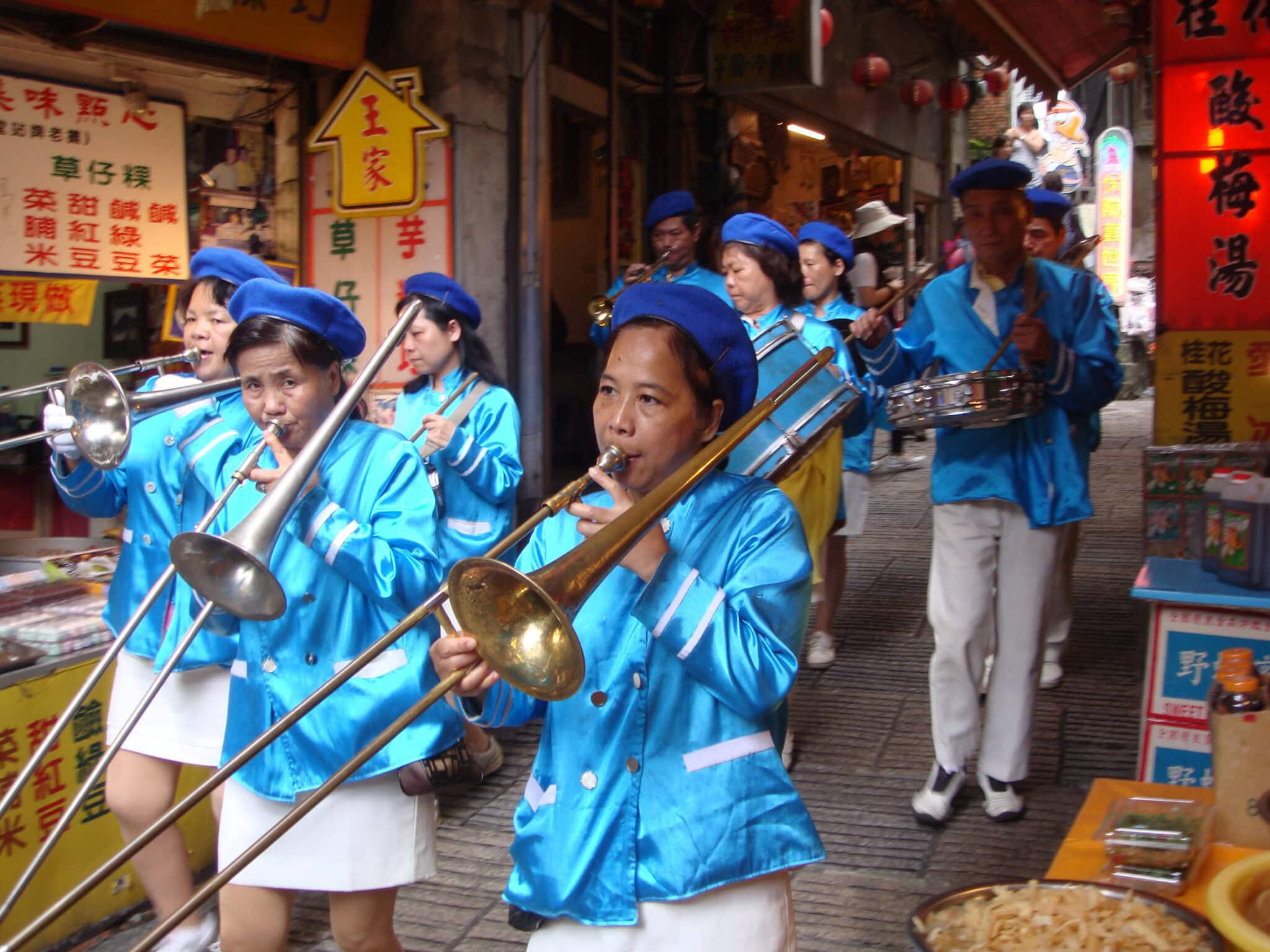Recently, an American friend of mine lamented that some of his family and friends back home still assume that Chinese people fit a common stereotype for Asian-Americans: quiet, unassuming nerds. But China and its people are anything but quiet; rather, this is one of the loudest places I have ever visited. Amplifying the deafening din of Beijing’s twenty million is the Chinese appetite for all things renao, or “lively and buzzing with great excitement.” Locals enjoy shouting across the hubbub of a restaurant at lunchtime to get the attention of a waitress whose reply only adds to the clamor.
Only recently did I discover that this penchant for loudness extends to cultural rituals that Westerners imbue with quiet reverence. On certain holidays or after national tragedies, our leaders often call for a moment of silence, one in which Americans bow their heads and reflect solemnly on the loss or sacrifice of the beloved departed. But in China, grief triggers sonic bedlam, as people tend to voice their anguish in a cathartic uproar. In the wake of the 2008 Sichuan earthquake that claimed the lives of nearly 70,000, the central government held a three-minute “moment of silence,” by the cacophony of police sirens, car horns, and people in the streets clanging pots and pans.
China’s loudness also extends to moments of joyous remembrance. Before coming to China, I had heard a great deal about “ancestor worship” and its central role in Confucian thought. Yet my Western notions of religious practices did not give me an accurate conception of the ceremony.
A few weeks ago, I got to visit the family tombs of my Chinese friend. Our small caravan of cars pulled over on the side of a rural highway, and a throng of relatives spanning three generations clambered onto an overgrown dirt path and into the jungle. The male relatives and I made the trek carrying boxes of fireworks, while the women helped the elderly navigate the slippery trail. Finally, we arrived at the gravesite, where vines had started to encroach on the burial mound. Expecting quiet observance, I heard something rather different:
“Hi grandma, it’s me, Dingbo. So nice to see you! Today I brought my American friend. Okay, now I’ll pay you my respects.”
My friend’s tone was as cordial as if he had been greeting his grandmother in the flesh. He laid down several sheets of paper to kneel upon, bowed three times, and made way for his relatives, who were equally if not more bombastic. Some wished their ancestors “good health and long lives,” which I found exceedingly ironic but strangely sweet. Finally, we lit the fireworks, the visual display rather underwhelming but the sound vociferous.
After doing the same at the family’s other graves, we enjoyed a classic family-style dinner with bountiful fare and rambunctious toasting, our glasses full of potent Chinese rice liquor–not exactly the quiet Asian type some Americans imagine.
最近我一个美国朋友很感慨他家的朋友和家人依旧对中国人保持刻板印象:安静, 不出风头的书呆子. 但是中国和中国人民一点也不安静. 事实上, 中国是我拜访过最吵的国家. 让北京2000万人震耳欲聋的声响更加吵闹的即是中国人对“热闹”或是“活跃且充满刺激”的场合的喜爱. 当地人很享受午间隔着热闹餐厅大叫就是为了得到服务员的注意, 而服务员的回答更是更显吵闹.
我到了最近才发现这种对巨大声响的爱好是从文化仪式而来的. 这些仪式是西方人口安静尊重的. 在特别的节日中或国家灾难后, 我们的领导会花一分钟默哀, 美国人会把头低下来并慎重的回想那些被敬爱的人的离去或牺牲. 但是在中国, 哀悼会引起喧闹, 因为人喜欢用喧嚣来表达他们的担忧. 在2008四川地震带走将近70000人性命之后, 中央政府举办了一个三分钟“默哀”的活动, 但是是由警笛, 车子喇叭和人敲打着锅子和平底锅所组成的.
中国的喧闹延伸到对快乐时刻的记忆. 来中国之前, 我常常听到“祖先崇拜” 和他在在孔子思想中所扮演的重要角色. 但是我对宗教仪式的西方思想没有给我对这个仪式的正确观念.
几个礼拜以前, 我拜访了我中国朋友的家庭坟墓. 我们小小的车队在一个郊外高速公路旁停车. 一群横跨三代的亲戚走上杂草丛生的泥土路上并走进丛林. 男亲戚和我带着烟火和盒子, 女人们帮助老一辈的人走较滑的道路. 最后我们到了墓地, 藤蔓已经开始在坟墓上蔓延. 我以为过程会很安静, 但我听到的是不太一样的东西.
“嗨外婆, 是我, Dingbo. 真高兴看到你!今天我带了我美国的朋友. 好, 现在我要向你致意了.”
我朋友的友善的讲话着仿佛他是跟他外婆本人讲话. 他放下了很多张纸并跪在上面, 鞠躬了三次并让位给他的亲戚, 他们甚至更喧闹. 有些希望他们的祖先有“好的健康和长寿”, 我听到这个感觉非常讽刺但也很窝心. 最后我们点了鞭炮, 鞭炮视觉上看似不怎么样但是却有极大的声响
在其它家庭的坟墓做相同事情之后, 我们在一家家庭餐厅享受充满丰富的食物和相互敬酒的一顿晚餐. 我们的杯中放着米酒—不太像美国人所想像亚洲人的样子.


